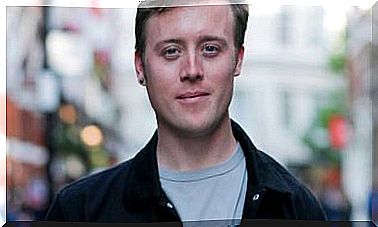Is It Too Late To Change? Not At All!
No matter how old we are, our brain is trained to transform harmful attitudes and learn new, healthier ones. The key to change is in our motivation.

Many people are aware that they have emotional problems and that, in order to overcome them, they would need to modify certain very harmful personal attitudes. However, they look (and think) too old to consider changes in their lives. To justify their paralysis, they repeat phrases like “I can’t change anymore, what are we going to do?” or “I am too old, at my age nothing can be done.”
This approach is not only argued by elderly people, I have met quite young people, who were having a really bad time in their life, but who felt unable to change. They told me: “I’ve always been like this and I can’t do anything to remedy it.” This immobile stance, which prevented them from considering a different horizon for their future, dragged them to continue suffering and to continue harming their loved ones.
Up to what age is it possible to change our negative patterns?
Although it is true that modifying our habits is not an easy task, the good news is that, no matter how old we are , we are always in time to modify the negative patterns that we carry since childhood. We can always introduce changes in our life and this is not something that has to do with age. Both young and old, they can change if they really want to.
At the end of the last century, in the faculties of psychology and medicine, we were taught that the brain has a great capacity for learning during the first years of life, but that, from adolescence, it begins to degenerate and progressively, we end up lose this quality.
However, the neurological discoveries of the last decades tell us about brain plasticity and how we can change habits and learn new knowledge throughout life. Today we know that, as long as we live, we have the possibility to transform our ideas, customs and behaviors.
The key is in motivation
When a young man comes to my office with doubts about whether, despite his age, he will be able to change his patterns, I always tell him about the case of Antonia, a 75-year-old woman who suffered from depression and chronic pain that did not respond to any medication. It was precisely his doctor from the Pain Unit who recommended that he seek psychological therapy to work on the emotional aspects that were affecting his physical problems.
From the beginning of her therapy, Antonia was one hundred percent involved in her healing process.
He was very clear that he wanted to fight to get out of his depressive state and did not doubt, at any time, whether he would be able to achieve it despite his advanced age.
No one had told Antonia about those theories of the last century about brain stagnation and deterioration, so she was convinced that, at 75, she could learn to change. In fact, it was her age that motivated her the most. She had spent her entire life, without thinking about herself, striving and sacrificing herself for others, and now that the end was near, she wanted to get rid of all her conditioning and fears to focus on her and learn to enjoy herself.
From this perspective, she not only felt strongly encouraged to change, but arguably had an urge to do so. In his first session, he told me: “I don’t know how long I have to live, it can be years, months or weeks. What I do know is that all the time I have, I want to enjoy it and live it to the fullest ”.
With this motivation, we worked in therapy and she began to free herself from the trauma and abuse she had suffered throughout her long life. After 75 years, Antonia learned to value herself, to defend herself against abuse and to express her opinion clearly without worrying about what others thought.
For the first time in his life, he began to take care of himself and was able to see the world with different eyes, no longer from the darkness, but from the joy and enthusiasm for living.
It’s been almost 15 years since Antonia came to my office and I don’t know anything about her. I do not know if she is still alive or if she has already passed away, but I am convinced that, as she wished, she will have enjoyed her last years of life to the fullest.
The conclusion we must draw from this story is that, if 75-year-old Antonia could change and give her life a 180º turn, we can too. The important thing is not age, but the motivation to want to leave behind attitudes and patterns that are not useful to us, that paralyze us and prevent us from enjoying life.









